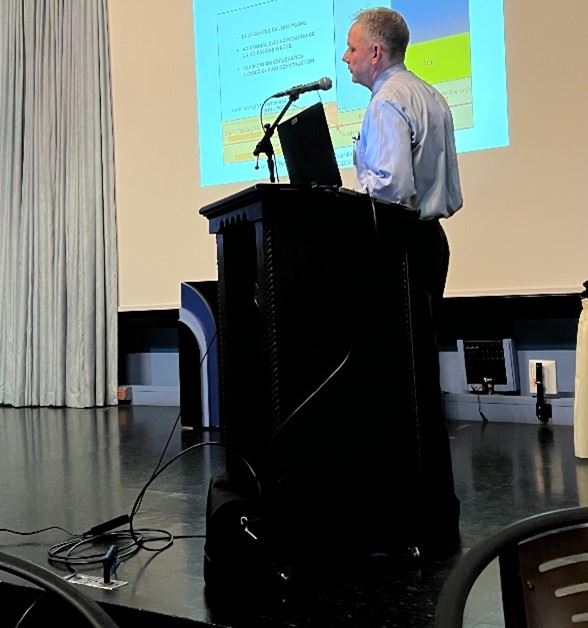“Montgomery Locks and Dam Subsurface Investigation”-James R. James, P.E.
Write up By: George Chammas and Taylor DaCanal
On January 19, 2023, the ASCE Pittsburgh Section Geo-Institute (GI) held its
annual joint meeting with the Pittsburgh Geological Society, and Association of Environmental Engineering and Geologists. The event was held at Cefalo’s Banquet and Event Center. This was the first GI meeting in 2023, and the turnout was tremendous with over 115 people registered. The presenter was Mr. James R James, P.E. of the U.S. Army Corps of Engineers, Pittsburgh District, his presentation was titled “Montgomery Locks and Dam Subsurface Investigation". Mr. James focused on the geotechnical subsurface exploration for the locks and dams of the Ohio river.
The presentation focused on the geotechnical challenges that were presented during the subsurface investigation for the navigation structures on the Ohio River. The project was located at the new lock chamber at the Montgomery Locks and Dam in Beaver County, Pennsylvania. The subsurface investigation consisted of rock coring, soil sampling, pressure meter testing, water pressure testing, optical televiewing, and acoustic televiewing. In addition to the field investigation, extensive laboratory testing was performed on the rock core samples and soil samples.
One of the challenges in the subsurface investigation included recovery of soil samples in a traditional hollow stem auger. To better characterize the upper soil layers, the investigation utilized sonic drilling methods. Sonic drilling utilizes high frequency inside a sonic head to advance a core barrel.
The other geotechnical aspects of the subsurface investigation involved the testing of rock samples specifically the coal seams. To better determine the shear strength parameters of the coal, direct shear tests and rock pullout strength testing was performed. The selection of the rock core samples was a critical part to the testing. This helped achieve more accurate shear strength parameters for the analysis of the concrete wall.
Overall, the January event was an informational event to attend and learn about the different methods of subsurface investigations. It was interesting to learn about the subsurface investigation methods not typically used on every project. We hope to see more engineers, students, and anyone interested in learning more about the geotechnical field at upcoming events!
